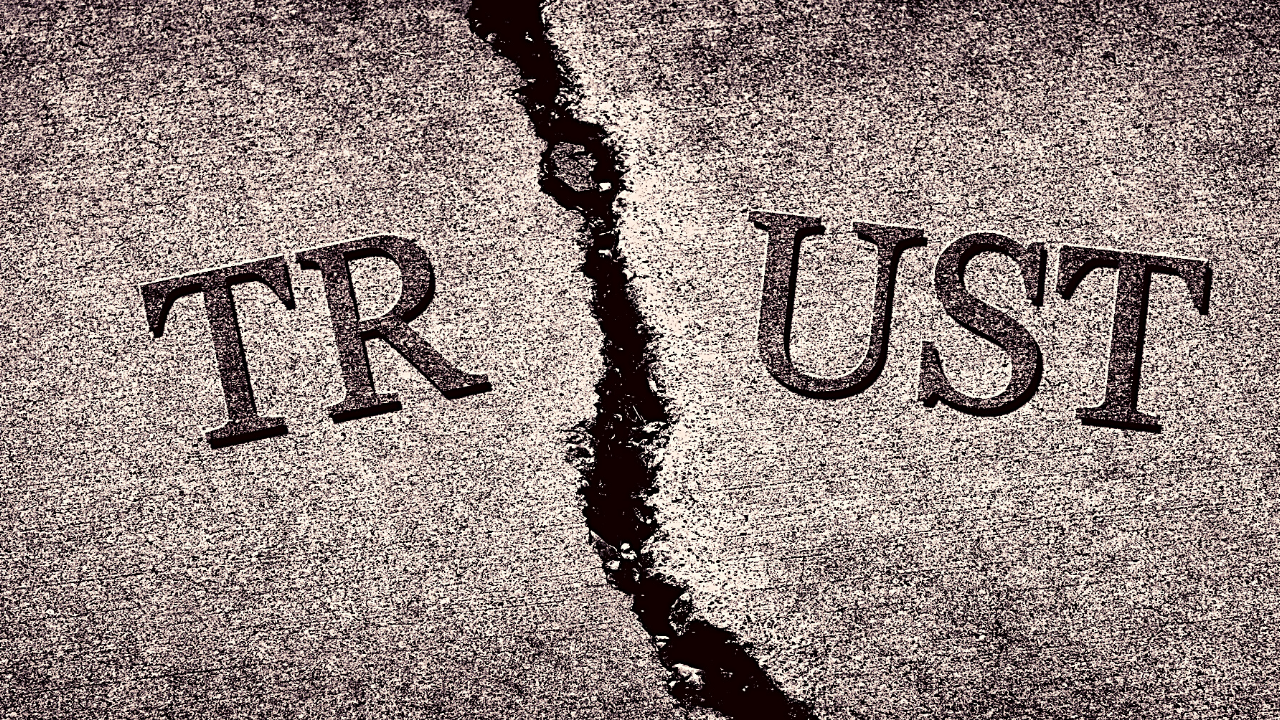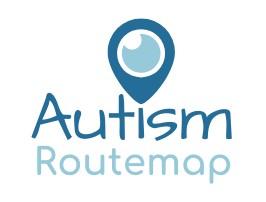When trust is broken

This morning I woke up to an email that brought a smile to my face. News I had been hoping to receive had finally arrived! There was quite literally a spring in my step until …. I discovered that it was a scam.
For some inexplicable reason, someone had put their amazing techy skills to bad use and I became another statistic. Two weeks prior to this, my daughter was caught by a scam which resulted in the entire contents of her bank account being emptied.
Scams, fake news, counterfeit vaccine passports … it seems to be everywhere at the moment. It’s hard to know who to believe and all too easy to distrust. I got so suspicious after my daughter’s scam that I ignored a perfectly valid message from Royal Mail!
Trust once broken is very hard to restore. Did you ever stop to consider why?
Being caught in a scam is one thing but close relationships that have been hurt by broken trust are extremely hard to repair.
When trust is destroyed in relationships, we feel broken, exposed and deeply vulnerable. I think the saying, “I can forgive but not forget” was birthed in broken trust.
After we pick ourselves up and dust ourselves down, we are usually quick to armour emotionally. The landscape of the relationship changes as we harden our hearts to avoid being caught off-guard again in the future.
Anger and indifference fortify our emotional walls to protect the feelings of disappointment and hurt. We resolve to sever the relationship or at best, maintain an emotional distance that keeps the guilty party at bay.
Time and again I see this scenario playing out in the lives of my clients. Don’t get me wrong - all relationships struggle to weather the storms of broken trust. But autistic people are perhaps more vulnerable given their greater difficulty reading intentions and seeing different perspectives. A more rational, logical mind may also become overwhelmed in the face of confusing and unexplainable behaviour.
And the road to recovery is usually very tough. Oftentimes, leaving people stuck in patterns of frustration and despair.
Why did they do that? Why did they hurt me? How can I ever trust again?
Although we can readily identify with the aftermath of broken trust, defining what has gone wrong and what is needed to repair is much more complex. Quite often, broken trust is the fatal blow and we never fully recover. We stay stuck in the pain.
What if we had the language to identify what went wrong and what is needed for our inner healing? Could that be the key to moving forwards?
Brené Brown offers us an opportunity to do just that. In a recent Unlocking Us podcast episode, she shared what comprises trust or, in her words, “the anatomy of trust”. Knowing this, gives us the required language to spot a trust problem and also, identify what is needed for healing.
Using the acronym, BRAVING, Brené walks us through the framework of trust which shines a light on this shadowy concept.
BRAVING (Acronym by Brené Brown)
- B = Boundaries
Trust cannot exist without boundaries. Each person needs to respect their own and each other’s personal boundaries (those limits or rules that protect our sense of self).
- R = Reliability
Trust only exists when we both do what we say we’re going to do. We must deliver on our promises.
- A = Accountability
For trust to exist, both parties need to be willing to own and apologise for their mistakes.
- V = Vault
Shared confidential information must be securely stored in the “vault” and held in mutual confidence. Interestingly, Brené points out the existence of another door to the vault which should never be opened if trust is to remain intact.
That is the choice to keep the confidence of information we have on a third party. It is never OK, no matter how juicy the gossip, to break the confidence of another. Because when that happens, the person breaking the confidence can no longer be trusted. Even though intimacy is often forged by having a common enemy, it is a counterfeit intimacy that destroys trust.
- I = Integrity
Trust only exists when both parties act from a place of integrity. Brené describes this as “choosing courage over comfort”, “what’s right over what’s fun, fast or easy” and “practising your values rather than just professing your values”.
- N = Non-judgement
We all need to be accepted for who we are without being judged even when we are in the midst of a struggle. And there’s another crucial part to this. We need to be able to both give and receive help in times of need. Brené notes that if we judge ourselves for needing help, we will probably judge others when they need help. Ouch!
- G = Generosity
In a trusting relationship, both parties need to “assume the most generous thing” about the “words, intentions and behaviours” of the other and be willing to check in for confirmation.
Using this structure, I am much more easily able to define what went wrong in my relationships where there has been a trust issue. I hope it will do the same for you.
What is clear to me, is that this is no quick fix. There is no pill that brings instant relief. Emotional and relational healing simply don’t fit that mould. It is a slow process that asks much of us. We have to be willing to sit with our pain and process it.
Hard as it is to revisit pain or tackle a trust issue in a relationship, the rewards are worthwhile. Instead of living crippled or numbed by emotional pain, we slowly become lighter, freer and able to engage again without feeling overwhelmed by fear or anger. Even when a relationship cannot (or should not) be restored, we can reach a place of understanding, inner healing and acceptance.
Trust is necessary for relationships but so is wisdom. It wouldn’t be wise to just ignore what has happened and blindly trust again. Brené Brown helps us to identify what we need for trust to exist in the first place. And with that knowledge, we can intentionally choose how to move forwards. Whether that's a relationship that can be repaired or whether we need the time, space and understanding to heal from a distance.
To trusting with wisdom!

Disclaimer
This blog post is for educational purposes and should not be taken as medical or therapeutic advice. If you need medical or therapeutic support, please consult your medical practitioner or therapist.
Linda empowers and equips people to communicate effectively, find freedom in their relationships and experience greater emotional well-being.
Whenever you’re ready, here are three ways I can help you:
- Grab a copy of: “Your guide to life after an adult autism diagnosis. Taking the next step into an empowered future!”
Use this guide to clarify how autism impacts you personally so you can:
- understand and clearly communicate your needs
- explain the diagnosis from your perspective
- take action to accommodate your needs and identify skills you want to develop
Click HERE to get your free copy
- Work with me directly
If you’re interested in working with me privately to fast track your progress in developing an emotionally healthy life and harmonious relationships, then I invite you to schedule a FREE call to discuss the options that are available.
Click HERE to book your call.
- Join our private Facebook group.
This is a place to connect with like-minded people to share challenges and solutions … and cheer each other on in your journey.
Click HERE to join

